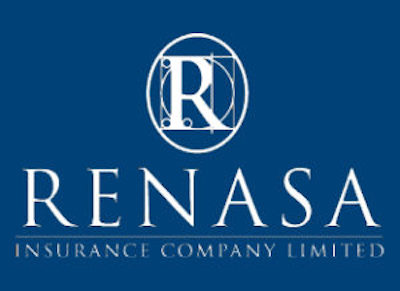

Amit Lev, Trade Commissioner to the The Israel Trade Mission to Southern Africa
The Economic and Trade Department of Southern Africa serves as a focal point of contact for Israeli companies, businesses and industries seeking trade and investment opportunities in South Africa and the Southern African region.
For the past 18 months the Trade Mission has facilitated 10 inbound delegations to SA (Cyber, Mining, Agricultural, Medical devices, Water), 14 outbound delegations to Israel (Telecom, FoodTech, Medical Cannabis, FinTech) and we have brought 4 speakers from Israel to expose the success in WaterTech, TravelTech, InsurTech and AgriTech. Accelerating innovation in the Southern African Region, the Trade Mission had its first business delegation outside of SA in which a cyber-delegation was hosted in Botswana. The total value of success stories that were assisted by the Trade Mission: 130M Rand ≈ 8.3 M$.
Why Israel?
Israel is serious about opening up the high-tech market, and we have the highest density of start-ups in the world. Israeli companies tend to play in functional spaces and the resulting tech can be surprising. Benefits of doing business Israel, it is #3 in the Global Innovation Ranking; #1 in R&D expenditure as part of the GDP – 4.5%; Israel attracts more venture capital per capita than any other country; #2 in investors’ confidence ranking after the US and Israel has more companies listed on the NASDAQ than any country besides the USA and China with >350 R&D centers in Israel.
Why Fintech/Insurtech in Israel?
Israel is a global hub for fintech, there are 500+ Fintech / insurtech companies with $4B total acquisitions and fundraising 2014 – 2017. More than 15 foreign banks operating R&D activities in Israel; 4 R&D centers of foreign insurance companies; 3 R&D centres for payment solutions. Insurance market in Israel – ~ 20 companies, 180B rand in total premiums (Life) and 100B rand in general insurance.
As technology helps improve assessing and processing applications and claims, new insurance products are being developed. We have seen in the last years growing trends in Israel for the insurance market based on strong capabilities that Israel gained in distinguished segments such as: artificial intelligence, big data, cyber security, cloud computing and more. In the next few paragraphs, I’ll highlight some of the trends that are booming in Israel.
The 1st trend that we see is accessibility/visibility. A few companies created platforms to ease the usability of insurance products and make it more user friendly and visible to the end user, companies like Lemonade – developed a quick touch base platform to home and car insurance products. OKO – an insurance platform for farmers in Africa that can insure their crops by SMS with by a parameter insurance product. Ginger – a travel insurance platform for travellers catering for backpackers up to business trips – one platform that can handle all.
The Israeli government even created a web tool for Israeli citizens called Money Mountain where all your insurance accounts and status can be found in one place to make it easier to be aware of all savings’ accounts.
The 2nd trend is personalization; no more 1 insurance for everyone rather segmentation and personalization that is characterized by the exact need of the specific client. Companies like Voom – medical coverage for scooter riders, drones defined by the uses. Parametrix – specializes in parametric (claim-less) insurance for SaaS, PaaS, and IaaS downtime, such as cloud outages, network crashes, and platform failures. Mip&Go – pay per drive, pay per sharing drive fuel.
The 3rd trend is artificial intelligence; Once we have the layer of the data we can build the next layer which is Artificial intelligence (AI) – how we can use the information that we have now to predict and optimize the growth and efficiency in the short and long term. Companies like Remitrix – SaaS cloud-based platform, harnesses the power of advanced Machine Learning algorithms, to recalculate insurers risk factors and optimise their overall Solvency Capital Requirement costs. SparkBeyond – empowers data analysts and scientists to rethink products, cost effective offering, proactive approach and automating processes. Scanovate – optimization of digital and compliance platforms. Cyberwrite – using AI tools to propose cyber products and cyber underwriting
4th trend, digital health for medical aid and life insurance. There are new technologies around telemedicine and digital health that can give companies better accuracy, segmentation capabilities and automated process that can create comprehensive communication and follow up with patients. Companies like Myndyou – passively monitor your patients’ day-to-day cognitive health at home so you can intervene at the right time. Tytocare – medical exams from the comfort of home, including camera, otoscope adaptor, statoscope tongue depressor and thermometer. Cnoga – non-invasive devices for Measuring Blood Parameters and Glucose Levels
Last focus is on digital marketing. There have been tremendous changes in this field where communication becomes more digital and technology based. Companies like LEO – supports insurance agents by using artificial intelligence to handle 80% of customer service needs while efficiently cutting costs and increasing return on investment. Geffen Technologies– enable enterprise agents, brokers and advisors to digitally create meaningful and valuable interactions across all channels. Insuranks – is an international insurance marketplace platform and community of insurance carriers, agents, and consumers that ranks insurers based on user ratings and user experiences.
All these examples are just the tip of the iceberg from the innovation scene that is happening in Israel. I’m sure that with the right guidance and collaboration we can see cutting edge technologies flourishing in the SA insurance market.




